Women and the Armenian Church: Breaking the Patriarchal Barriers
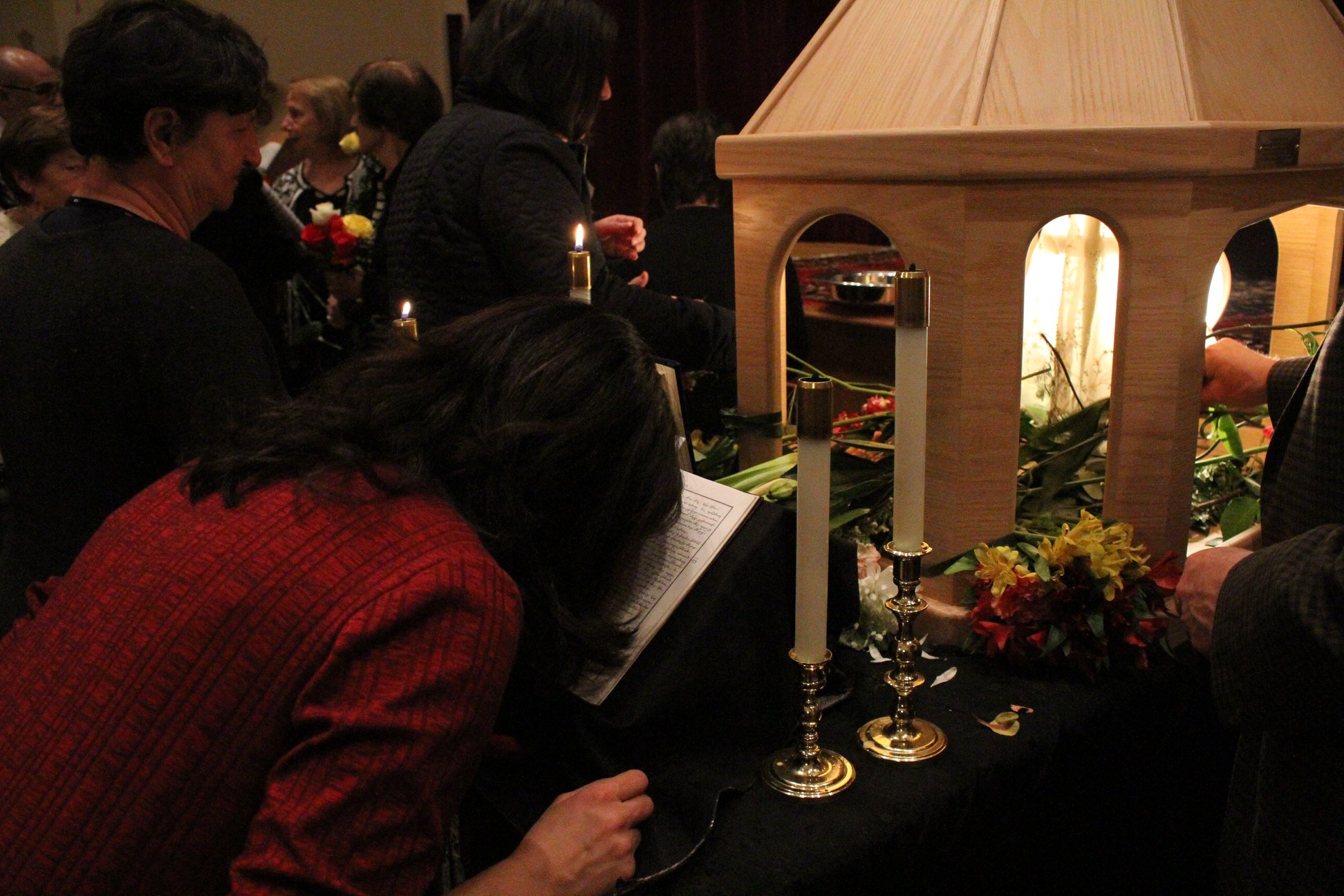

When we consider the pillars of our communal life, the Armenian family is an obvious choice—a source of pride through the centuries as a bonding agent for our sustainability, continuity and values. The family was the source of establishing and maintaining a profession. Multiple generations from the clan were doctors, merchants, farmers, jewelers or pharmacists. Armenians have taken pride in themselves as builders and contractors. The list of Armenian pioneers in education, technology, medicine and business is impressive. Families have been noted for their expertise and are respected by their peers. In the diaspora, it was the Armenian family that transferred the roots from the homeland to their adopted nation. Although the branches of the tree were cut by genocide, Armenians have always taken great pride in their family relationships with extended family considered a singular unit.
Indeed, the family is deeply rooted as part of our culture. But when you set the bar high, as we have from a social and professional perspective, you also carry the responsibility of fairness in equality. At the core of our families has been the enduring strength of Armenian women. The patriarchal traditions over the generations have limited the opportunities of women relative to financial independence, positions of authority and family structure. Men have traditionally adopted the leadership role and taken on more authoritative responsibilities, but without the influence of Armenian women behind-the-scenes and the family units that they have created and sustained, our way of life would have essentially faltered. Our patriarchal traditions, while static, have continued well beyond the advances of western society.
Specifically from a human rights viewpoint, it is the conscience of the oppressed that has continued to challenge humanity to better itself. Western history in the last 200 years has experienced the emergence and maturation of democracy while confronting such human stains as overt racism and hunger. Clearly progress has been hard fought and remains inadequate, but most will agree that sustained improvement in the quality of life has been attained.
One of the remaining human rights frontiers is in the domain of gender equality. At the root of this challenge is the traditional patriarchal culture prevalent through our modern times. Simply stated men have controlled the economic, social and political system in our society. In the last fifty years, significant inroads have been made as it relates to societal roles, authority, economic power, gender oppression, political power and self-esteem. Many of the longstanding walls of the repressive patriarchal culture are falling, granted not fast enough, not thorough enough and not without backlash. But the world is changing for the better.
The Armenian people are clearly a mirror of the world. We are no exception. We have witnessed changes in Armenia and in the diaspora that reflect improvement concerning gender equality. There is one institution, however, that is lagging. Society is moving so quickly that this respected anchor appears to be static. It happens to be the most important institution and therefore the opportunity is significant. This, of course, is our beloved Armenian church.
We love the Armenian church for many things: its spiritual leadership, its ability to promote our heritage and the commonality of identity it gives all Armenians. Many of our people, however, do not hold the church in high regard, relative to its connection to women. The range of views varies from ambivalence to tolerance to opposition. These are our mothers, wives, sisters and daughters, yet we tolerate what is clearly institutional discrimination.
The emergence of non-traditional Armenian women’s organizations such as the Armenian International Women’s Association (AIWA) reflects the changes in the role of women and their thinking as members of the human race and not simply of Armenians. It is exciting to see these organizations and older organizations such as the Armenian Relief Society (ARS) make the transitions to address these voids and be committed to the needs of the 21st century Armenian women. We should all take a moment to understand this phenomenon and lend our support. For all the men out there (including myself), we must view gender equality as a human rights issue. When you look at it from that perspective, it takes on an even greater importance. But where is our church? Some advances have been made to support the identity of women. The Ladies Guild organization in our church has been evolving into a woman’s ministry taking on issues of spirituality and social needs. Women are now routinely elected to lay councils. This is encouraging, but it’s not enough. It falls short of expectations and many women silently lose their identity and their presence.
Here are a few examples of current identity negatives that can and must resolved. Starting in the 1970s, there were public efforts to allow young females to serve on the altar as candleholders. At first, it was advocated by a few progressive priests, and later it was allowed by the Diocesan bishops in both the Prelacy and Diocese. Its implementation, however, has been very limited. Some parishes, such as the one I grew up in, implemented it for many years. There were other examples, but by and large it was left to the discretion of the parish priest. Many of the priests did not favor this; their sentiments were not based on church doctrine, but rather on personal views that were largely influenced by their patriarchal upbringing. The program eventually faltered with no real implementation discipline, and as a result hundreds of young women in our churches have been denied the opportunity to serve God and their church.
Identity with our church is frequently built by service. If this is sanctioned, then all should be offered the opportunity. The issue of women in the diaconate has been patronized for years. Despite a 1,000 year-old tradition of women deacons that continued in the 20th century, we have been unable to articulate a clear direction. On the one hand, the Armenian church has had the tradition of a monastic woman diaconate order yet fails to promote an established tradition that women are worthy of. The Great House of Cilicia recently ordained a woman to the diaconate in the Iran diocese. When the ordination took place, the presiding bishop stated that it was his wish that this tradition resume and that qualified women are encouraged. Obviously it is possible and has value.
It is not a crisis of faith, but rather a crisis of how and where to apply one’s faith in an institution.
One would think that a program that finds candidates within half of the population of the church would be considered important. Many of us are familiar with failed attempts in America with candidates and resolutions passed by assemblies. We have women graduating from St. Nersess seminary but are limited to roles such as Diocesan staff and youth ministry. What kind of a message does this give the women of our church who are experiencing, on a daily basis, the revolution going on in the world relative to their gender, yet when they enter our church it seems to be a distant star? It gives a message of exclusion! We have lost many women who cannot reconcile their identity with the church. Some have found identities in other Christian denominations. It is not a crisis of faith, but rather a crisis of how and where to apply one’s faith in an institution. Imagine the impact to women who have spiritually heard the call to serve as deacons and have no vehicle in their own church? I recently heard some encouraging words from Bishop Daniel. He understands the issue. It is a difficult one because the patriarchal system is functioning above his pay grade. He has to navigate challenging waters. Tell him and other leaders how you feel and pray for his success.
Another matter that impacts the identity of women in our times is how the church chooses to address (or not address) important social issues. In particular, the church has been very quiet on the issue of domestic violence towards women. We all know that this is a particularly tragic issue in Armenia. As the vanguard of morality, the church should be the first to step forward and work to end this tragedy. Domestic violence does not end, because a law was passed. It needs the support of major institutions, such as the church. Specifically it must be made clear that this is unacceptable for Christian Armenians, and the church will join the fight to eliminate this disgrace. I don’t hear that. What I hear is “of course the church is concerned.” Sorry, no benefit of the doubt when lives are at stake.
This issue is not limited to Armenia. Armenian women suffer from domestic violence in the diaspora also. The church should be active in first publicly establishing a clear position and then reinforce it with programming. The church must be the “sanctuary” from human rights abuses that all the faithful, including Armenian women can count on. This leftover behavior of our patriarchal culture must be eradicated. The church has a major role to play in that hopeful victory.
Whether we refer to it as the “boys club” or by the more sophisticated term “patriarchal,” the power structure of the church must accept that it is very difficult for a male-dominated institution to explain away some of these lapses. Our leaders must understand that the Armenian women of today carry the same values and character strength of their grandmothers, but have higher expectations of their church as the general society has advanced. The church has been able to avoid this topic because we, the members of the church, have given it a pass. This will not continue as an increasing percentage of women expect leadership and relevance from their church. Will the church continue its filibuster and continue to tolerate the attrition, or will we truly embrace the opportunities? The prominent role of women in the Bible provides us with inspiration and guidance. As more women take on roles of authority and prominence in our church, we will see the results in a stronger church family.



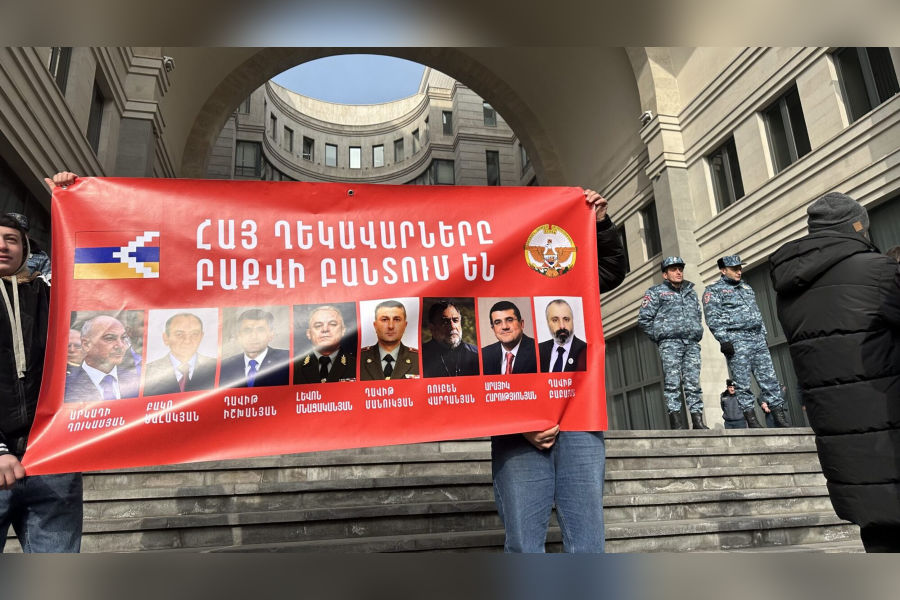

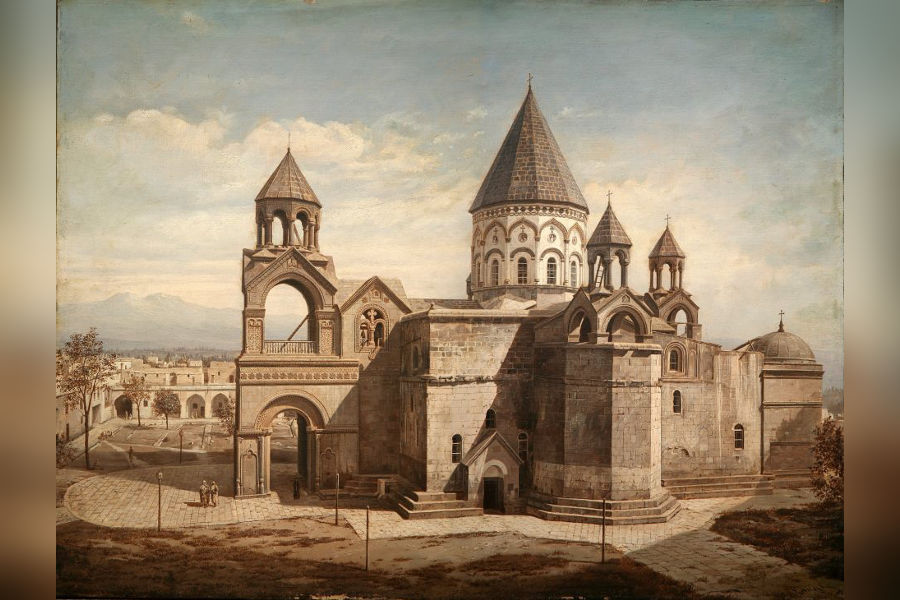
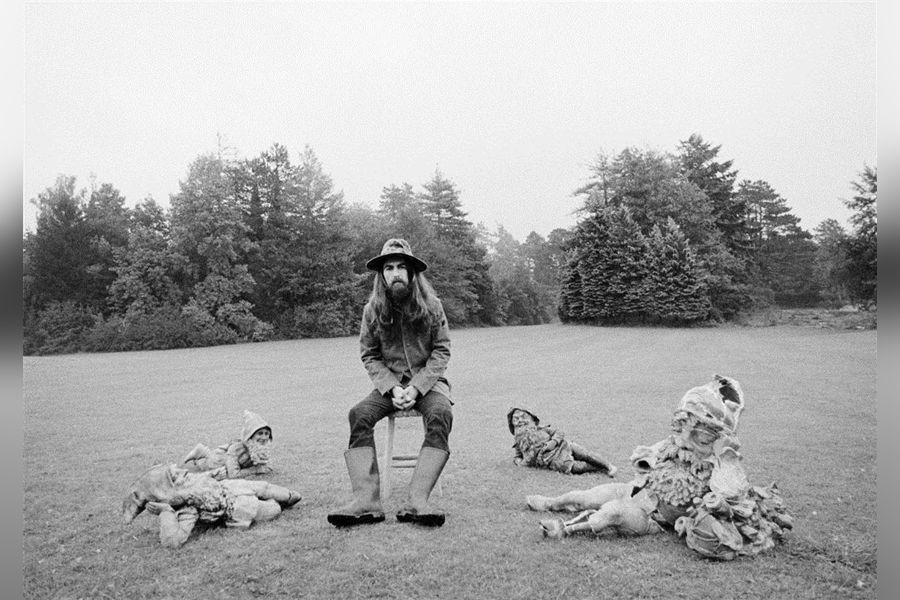
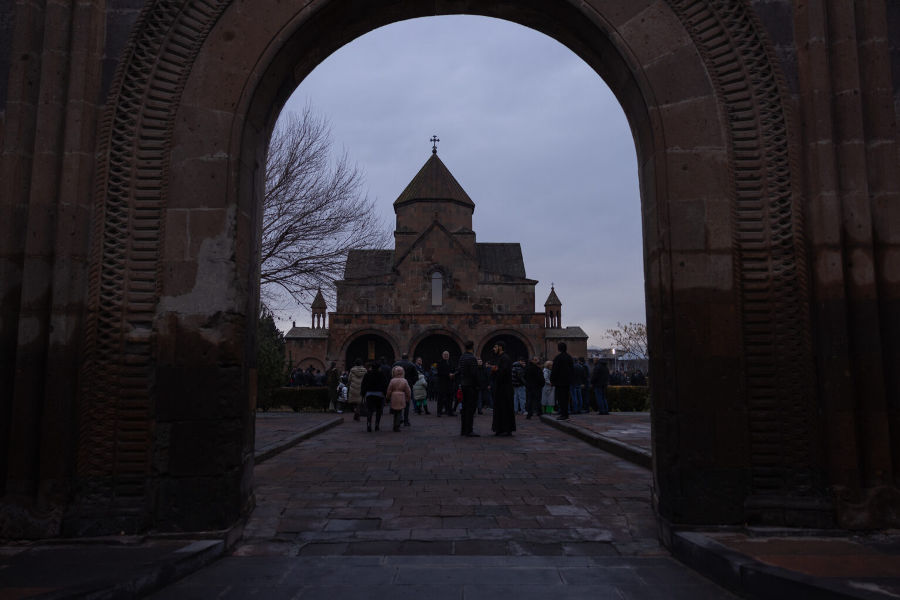
Thank you for this article. I was just discussing this very topic today concerning our Church. We often talk of attrition, but this never comes up as a reason. We will never hold on if we continue to subjugate half the population.
The issue of women in the Armenian Apostolic Church priesthood was raised to the Catholicos of blessed memory Karekin I Sarkissian during his meeting with the young parishioners of the St. John’s Church in Southfield, MI. during his first pontifical visit to U.S. after his election as the Catholicos of All Armenians. I attended the meeting with our son and niece.
The Catholicos made it clear that such change would not happen under his watch and he said the tradition of men’s priesthood has come about because Jesus chose his disciples among men and that it was not meant to be discriminatory in any ways. I wish we had recorded his lighthearted and profound ways of treating and presenting to the audience that important subject.
Personally I see no compelling need to change nor do I find that it will enhance my spirituality and humanity or it discriminates in any way the women who are dear to me and their gender.
But, that does not meant to say that that there should not be more visible roles for women but I am not versed ienough in the complexity of the institution the Armenian Apostolic Church is to suggest how and in what capacity without altering the centuries old tradition with a big T as the Catholicos noted.
Thank you for your comments Vahe. The areas
that I have suggested are not in the priesthood.
It seems that frequently when we discuss women and
the church, it only includes the priesthood. There are
many ways to enhance the role of women as noted.
My hope is that we engage in serious dialogue
to address this important issue. We can not expect
women ( or men for that matter) to accept this double
standard whole the world moves forward.
I cannot tell you how much this article means to me.
My father was divorced and so when he and my mother married…they had to elope. When they returned to my mother’s home…the “committee” said…”You have to have a church wedding to bring honor to the family.” So they did. The pastor of what is now St. John’s United Church of Christ officiated the wedding. That is the church where is was baptized, confirmed and ordained.
I did spend 5 years at St. James Armenian Apostolic Church but returned to the UCC. I won’t go into all of that here.
I have been ordained for 30 years and while I fully appreciate my denomination…there is always a part of me that never feels like I am home.
This article has given me a sense of home and I thank you so very much.
May God continue to shine through your life work.
Dear Rev.Dr. Susan:
I am so happy to have read your comments. The entire purpose of the column is to encourage dialogue on important issues of our church and community. I can think of no issue of greater importance than our communal spiritual identity. As an advocate for the Armenian. Church, it saddened me that the church in the western diaspora has lost people especially women who deal with real identity issues. But I also find joy when we hear that they have found their place with God.
Thank you again for your kind feedback.
Armenian church needs to be reformed – back to its origin, NOT to be formed to Western stle churches, where there is no christianity anymore!
What would such a reform look like.
All humankind is sacred.
Without woman there would be no life.
While men are amazed at their God given privileges,
God, Our Father, did not discriminate when he created woman
Jesus had loyal disciples of the female persuasion, though not the traditional first twelve. I think it is an error to assume that He only meant for men to serve in that capacity—we don’t really know that. In Paul’s writings he greets women, refers to them as co-workers, and even called one an apostle. Certainly women played a vital role in the building of the early church. The tradition of deaconesses once existed in the church. Why did this change? Is it because once hierarchy was developed, women were seen as less entitled to lead within a traditionally patriarchical society?
I think it is time to seriously consider the ordaining of women deacons in our church and to recognize the desire for pious service by our mothers, sisters and daughters.
In any case I would suggest that all talk about inferiority and inequality is really irrelevant and un-Christian.For the basic fact about the sexes is not that they are inferior or superior to each other but that they are different. The objections to the ordination of women are not those of blind prejudice,male chauvinism, or even of expediency and psychology,but of fundamental theology.The restriction of he priesthood to men is emphatically not a sign of male superiority; the priest’s imaging of Christ is a service, a ministry;the church’s hierarchy reveres that of the world – the apostolic minister is ‘ last of all'(I Cor.4:9) and servant of all (Mk.10:44)
There can be no fully orthodox theology either of the Incarnation or of salvation without to the male gender of Christ.His self-giving on the cross is the archetype of every man’s attempt to give himself in love to a woman(Eph 2: 15ff).
Far from presenting the appearance of a social order which has discovered how to control and direct the tremendous forces which science and technology have released,it bears all the marks of a situation which has got thoroughly out of hand.The Church should be loyal,both in ordering her own life and in presenting the Gospel to the contemporary world, to the revelation which she has received from God in Christ.
The ordination of women in the Anglican Communion and in the Episcopal Church of the USA and Canada has been a ‘ new obstacle and threat’ on the path to Christian reconciliation.
The Armenian church should be alert to the threat of ‘Protestanism and to capitulate to the attitudes and perverse and ephemeral assumptions of the present day ‘
Reading this all again much later and what continues to baffle me is the reality that no human would be born if it were not for a woman. Interesting how that detail gets lost.
Thank you for this article. The more people speak out, the more likely we will see change. And we must continue to pray.
I am Armenian and was raised in the Armenian Apostolic church. However upon adulthood I found myself leaving the Armenian church for more protestant churches where women could be recognized as clergy. Now in my later years of life I have returned to the Armenian church due to a longing for my heritage ; however, the discomfort of knowing the patriarchal structure is still in place preventing women from fully participating. I have even heard some professional women refusing to take communion since we are required to wear a head scarf which represents our subordinate position to men. This is very sad. Just food for thought.